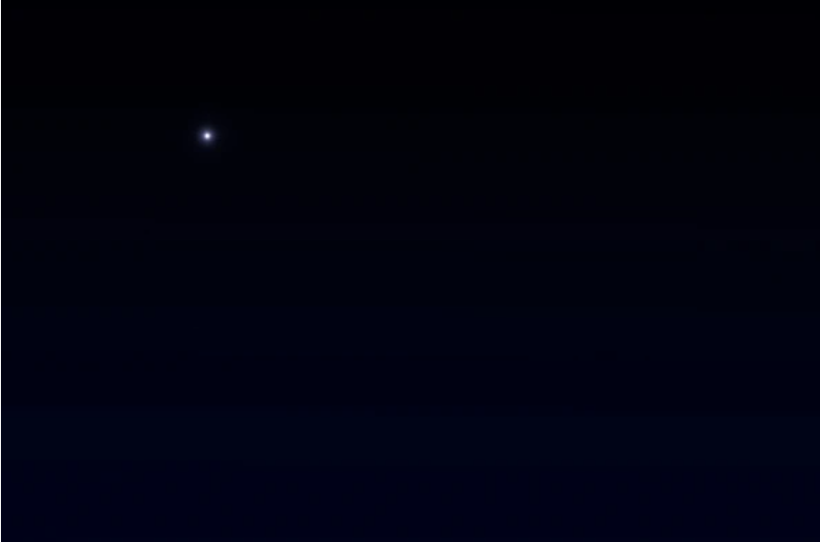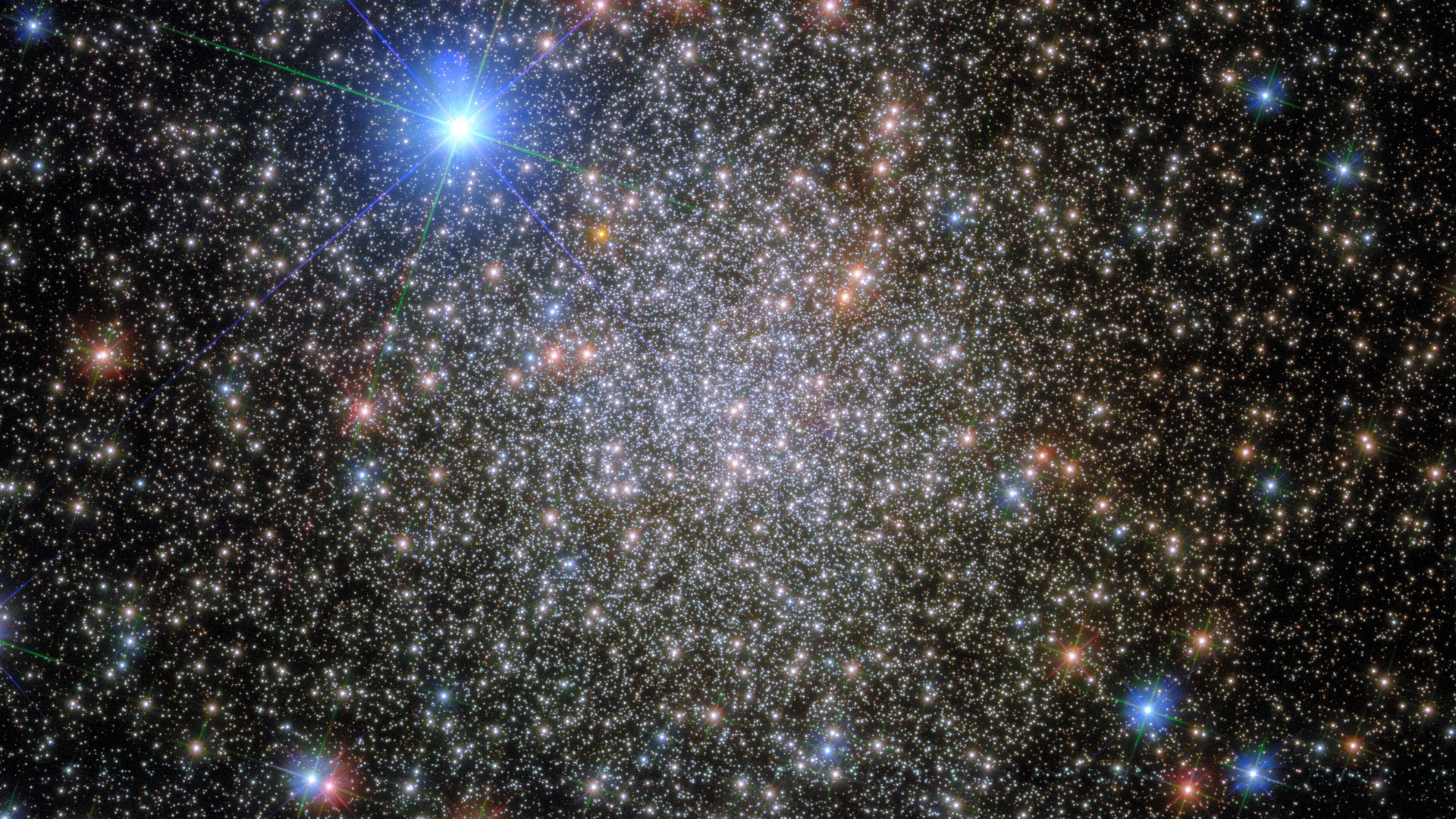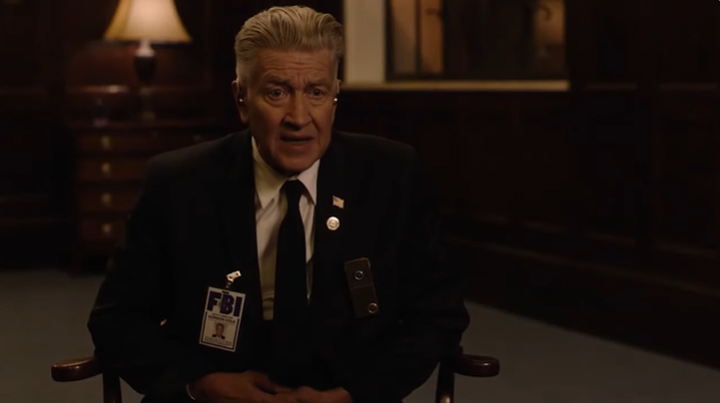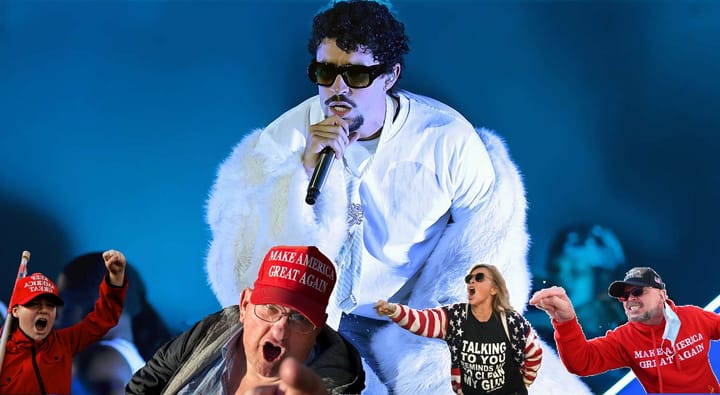So Shines A Good Deed In A Weary World
Dark isn't the opposite of light, it's the absence of light.

I don't really feel like celebrating my country today. It doesn't seem worth celebrating. We've got a supremacist mass murder theft and corruption bill that just passed the House of Representatives with nothing but Republican votes in favor, and only two Republicans voting no. A lot of people are going to die so that people who have more money than they could ever spend can have even more, and people who only feel safe when others are suffering and dying can feel a little more safe. So it's my country's 249th birthday, and the old girl looks awful sick.
The new bill is a mass murder bill because it will kill people in mass quantities, and those who passed it did so in full awareness of that and with a clear motive; also because it sets up a framework for the sort of industrialized and administratively managed mass murder we've seen before in history, when people liked to dress up in the boots and the hats and the lapel pins with little skulls on them; also because from a budgetary standpoint it makes the racist ethnic-cleansing kidnap squads known as ICE into a de facto branch of the military dedicated to waging domestic war against the citizens of the United States. It's a theft bill because it takes all the value that the people of this country generate and snatches it away from the people who generated it. It's a corruption bill because it gives all that stolen value to the people who used their wealth to buy power and then used that power to steal more wealth.
The bill is a supremacist bill because it has the same philosophical foundation as my country (which is the United States in case I hadn't mentioned it). That foundation is the idea that holds some people are human beings, and all others are not, and those people who are human beings deserve to own those who are not human beings, to use them while they are useful, and then to discard them when they are not, and in the time between to punish them if they refuse to be owned, and to kill them if they resist the punishment. The ownership and use and punishment and murder of human beings is what supremacists refer to when they talk about their principles and traditional values, and as I said it represents a pretty foundational belief here in the United States. We were a land of slavery from the start, in case you hadn't heard.
We've got all sorts of supremacy in this country; male supremacy and able-bodied supremacy and hetero supremacy and christian supremacy, and on and on, but you can boil it down to white supremacy because while white supremacists will tell you that whiteness has something to do with culture and genes, it really only means "the people who get to be considered human."
So this bill was passed in order to murder people along white supremacist lines, so that their bodies can be sold and their corpses can be robbed, and it is very unpopular, but it still enjoys support from tens and tens of millions of people, and the people who promised to do all this theft and murder won enough votes to take power, and now they get to enact it. A lot of the people who are going to be harmed first and hardest are the people who voted for the party who passed it and are enacting it. Many of them will tell you they didn't vote for all that, and will explain that they had made themselves ignorant of all the promises of theft and murder, and would therefore like to receive a moral hall pass—although I do notice that you ask most of these folks about their votes, they'll tell you that even though they didn't vote for all this, if given the chance, they'd vote for the same people again. It almost seems as if they'd rather have white supremacy than life.
Some people support the murder and theft because they love the murder, while others love the theft. This latter group is careful to assure the rest of us about the distinction—that they only like the theft, not the murder. It's meant to be a moral distinction; those who ascribe to it apparently find it meaningful. They don't put it in exactly those words, now; they'll tell you that they are socially liberal but fiscally conservative, and stuff like that. Good for them, I guess. I suppose there were among the corpse-looters and profiteers in Nazi Germany some who didn't bear personal bigoted animosity toward Jewish people and Roma and gay and trans people and political dissidents and trade socialists, too. They, too, were socially liberal but fiscally conservative. Yes, and who gives a shit.
I'm coming up against a spiritual struggle today, something people less privileged than me have had to deal with for their whole lives, which is how to live among millions of evil people.
I should define what I mean by that. And I must be careful to say that I don't use "evil people" to extricate myself from my own complicities with our supremacist system, a thing that I only now and only imperfectly apprehend.
I'm reminded of a friend who doesn't like the term "evil people," because he's in touch with the reality that evil is something spiritual; a human spirit (or a series of beliefs if you prefer) that determines what propositions and goals and possibilities human potential will set itself toward accomplishing. And he's in touch with the reality that humans are art, and it is their beliefs and actions that are evil. So he's not wrong to be wary of that term, "evil people." I apologize to him.
But still, I look at a picture of our grotesque anus-mouthed fascist clown of a president and a couple of his spray-tanned sycophants laughing and celebrating the founding of a new death camp down Florida way, and I look at people actually buying and wearing merchandise emblazoned with what I guess they think is a clever name for this concentration camp, and I have to confess, I don't know how to think of them as anything other than evil people.
There comes a point at which human beings have abandoned the art of our shared humanity to such an extent, there comes a point at which human beings have so embraced malice and so rejected human empathy, there comes a point at which somebody is dancing with joy because other people are being slaughtered and hunted and chased with nowhere to go, there comes a point at which somebody is frightened not by the slaughter but only when the slaughter of other human beings stops, that I find my consciousness no longer makes the separation; can think not of human art corrupted by evil beliefs, but rather of evil people—quite literally, people of evil, people who have so given themselves over to evil that it suffuses them, blood, bone, and tissue. You can understand how people in different cultures independently came up with the idea of vampires, of things that look like humans but exist only to consume them in order to extend their unnatural lives.
But they aren't vampires. They're people. When you think of all the wonderful things people can be, you can share in that as part of your shared humanity. We have to say, this, too, is what people can be. People can engage with all the generative creativity and diversity that human beings are capable of, and listen to the music of it, and join the dance. But also, people can look at all these wonderful things, and decide "not for me," and choose instead ignorance and destruction and discord and death, choose instead power and control and greed.
Anyway, my friend is right. He shouldn't get a big head about it. He's wrong about other stuff, I bet.
Let's not say "evil people," then. Let's say "people of evil." It's the best I can do.

Or don't subscribe. I'm not the boss of you. But if you do subscribe, my gosh the splendors that await you.
If you question these people of evil, they'll tell you that they are just making the hard-nosed pragmatic decisions that are necessary to ensure our safety. This is clearly pure bosh. If these decisions were pragmatic and necessary, they wouldn't rely exclusively on lies and self-contradictory nonsense and hypocrisy for their rationales, and if they were meant to ensure safety, they wouldn't create so much death and destruction and pain and suffering.
I'm also told that one should never ascribe to malice that which can also be explained by ignorance. This is meant to be a morally sophisticated position, but I don't know. It seems to me that ignorance is a core property of malice, and letting malice off the hook simply because it also happens to be ignorant is not so much a sign of moral sophistication but rather falling for a game that is pretty obviously designed to swindle rubes.
Anyway, it's hard to credit the conservative movement with ignorance. If they were ignorant they'd sometimes accidentally choose less evil over more evil, but no. No matter where you set them, no matter how many times you spin them around, their moral compasses point with unerring certainty toward maximum atrocity and cruelty, and their gleeful celebration of it suggests that this isn't about hard-nosed pragmatism, but rather a genuine desire for evil things to happen.
How to live among people who have decided to hate and fear kindness and knowledge and creativity and diversity, and to love cruelty and malice and ignorance and theft and bullying and domination? How to live among people so committed to supremacy that they'd rather have it than life?
And how to live a human life during such dark days?
In times like this, I do what most of you do. Obviously, I turn to the Beastie Boys.
One of them, named Adam Yauch, aka MCA, said this:
Dark isn't the opposite of light, it's the absence of light.
I believe this to be an expression of his religious practice. MCA was a Buddhist, and it certainly seems in line with Buddhist thinking, though the line came from a song called "Namaste," which I believe is from the Hindu tradition. Either way RIP to Adam Yauch, gone from us too soon.
In the United States, my own religious tradition, which is christianity, has mostly given itself over to the evil human spirit of supremacy in order to reap the benefits of cultural domination, but it has a famous quote that goes along similar lines. It goes like this:
The light shines in the darkness, and the darkness has not overcome it.
Another quick interruption to scroll quickly past before you continue the essay.
The Reframe is me, A.R. Moxon, an independent writer. Some readers voluntarily support my work and pay whatever they want. Why would you pay for something that is free? Click the button; answers await you.
If you have no light, then what you have is dark. That's pretty simple and obvious, right?
But if you have a light—even a little bit of light—what you have is something unignorable (try sleeping in a dark room with a single bright light in it). More, you have a point of reference. Even more, what you have is a point of distinction.
You know where the light is, relative to the field of darkness.
You know that there is something that isn't darkness.
You have something that dark can't deny, that's for sure.
I don't know if you've noticed just how opposed to basic kindness people have become, but it sure is present in our everyday society. Covid exposed this in a big way. Think of how opposed to the very sight of other people masking those who don't want to wear masks have become. Think of how opposed to other people getting vaccines those who decided to be ignorant about vaccines have become. Or, let's leave Covid behind and just think of how the suggestion that Palestinian human beings, many of them children, should stop being slaughtered by the thousands, and stop being starved, and stop being shot when seeking food, is taken as an expression of hate and hostility, or even terrorism. Think of the ways that solidarity is being criminalized as hate, the way that solutions are being demonized as dangerous, the way that diversity is being framed as divisive, the way knowledge is being framed as elitism, the way moral principles are being framed as exclusionary, the way consequences for abuse are being framed as vindictiveness.
You can see it pretty much anywhere. You can certainly see it in the mass murder and corruption bill. There's stuff in there that doesn't really seem to be helping anybody at all, deliberate sabotaging of sustainable energy and dismantling of environmental protections designed to prevent the earth from being unable to sustain human life, and a bunch of stuff that just seems to be there to destroy things that help and help things that destroy.
I ask myself, why? Why oppose everything that is good wherever it is found, with such predictable frequency, and with such performative vigor? Why do those who ascribe to our foundational evil human spirit of supremacy so inevitably find themselves at a place where they seem to hate what is good simply because it is good, who seem to love what is evil simply because it is evil?
I'll tell you what I think.
I think it's because dark is not the opposite of light, but rather the absence of light.
I think it's because light shines in the darkness, and the darkness has not overcome it.
When you do something simple and basic that shows you care about other people, you expose people who don't. You don't do it by attacking anyone, but just by being. They experience it as an attack, and the fact that they experience it as an attack further exposes them as people who feel attacked by simple and basic acts of kindness.
The reason people of evil try to smother any point of light is because they know that in a field of darkness, light becomes something undeniable and unignorable, becomes a point of reference and a point of distinction, and that there really isn't anything they can do about it.
Dark needs perfect darkness to be perfectly dark.
Whenever and wherever light appears, all dark can really do is act as a perfect contrast to light. Dark can't do a goddamned thing about that. They can snuff out the light, I suppose, and they often do—which further exposes them. But in a field of great darkness, even a snuffed light shines long after it is gone. I think of starlight reaching us millennia after the death of the star. I think of the legacy of murdered heroes in the struggle against supremacy, in the struggle for justice and equality.
Dark can't stop light from being light.
Meanwhile, all light needs to do to shine in darkness is to be.
So I ask myself: what light can I be? Can I know something that I didn't know before? Can I speak that truth into the world? Can I change my own behavior as a result of that new awareness? Can I, in this knowledge and conviction and repentance, actually repair something that is broken? Can I stand in solidarity with somebody who needs a friend?
Can I love something that is good just because it is good?
Can I despise something that is evil, just because it is evil?
Can I act in a small way that leads to acting in a bigger way?
I think I can. I think you can, too.
And I think that it will be easier for me to be light if you'll be light. I think it'll be easier for you to be light if I'll be light.
I'm way behind on TV, which I have to mention as preface to the fact that I just finished True Detective's first season. It was pretty good, in my opinion, but it had a great ending. In the final scene, True Detective (Woody Harrelson) and his partner Truest Detective (Matthew Allrightallrightallright) are out in a parking lot, contemplating the night sky. True Detective points out that, in the battle between light and dark, dark seems to have a lot more of the field. Darkness, opines True Detective, appears to be winning.
"I don't know," Truest Detective muses. "There didn't used to be anything up there but dark. I think the light might be winning."
That's a hell of an ending to a show that was otherwise merely pretty good.
The field of supremacist darkness can feel overwhelming. There's just so much of it; sometimes, it seems to stretch from one end of the horizon to the other without respite. And there should be no doubt that the darkness does intend to snuff out light wherever it can. There should be no doubt that in times of darkness there is danger in being light; there is danger in being an undeniable and unignorable point of reference and differentiation. The price of being light is this: People of evil will try to snuff your light out, because they know full well what it means and they cannot bear it. That's why supremacy defaults to ignorance in a deliberate sabotage of knowledge; to complacency in sabotage of conviction; to denial in sabotage of all confessions of truth; to oppression in sabotage of any act of repentance; and to war and murder in sabotage of any true act of reparation.
Yes, the darkness can be very dark. It can seem as if it is winning. It seems that way today, on my country's 249th birthday.
But can I be light? Of course I can. You can, too. You're a person, and so am I. Light is part of our shared humanity.
Even people of evil can be light, if they choose to be. If they do, you'll know, because they'll stop being darkness, and they'll start being light. If they don't, they won't, and they'll try to make that our fault. There's nothing we can do about that. That's their choice.
But we have a choice before us, too, you and I. I can be light today, and so can you.
I think I can celebrate that, even today.
I can celebrate a country that doesn't exist yet. A world I can see even though it isn't here. A day of true independence of human beings from the evil human spirit of supremacy.
I'll finish this piece with another work of art that I thought was pretty good, but had a real banger of an ending that transcended the rest. This time it's the book Cloud Atlas, by David Mitchell. It ends with a man named Adam who has come face to face with the human capacity for evil, and finds himself overwhelmed, yet determined to return to his home country of the United States and be an abolitionist light against the midnight sky of human chattel slavery. The book ends with this passage, in which the man imagines his father's response to this:
You'll be spat at, shot at, lynched, pacified with medals, spurned by backwoodsmen! Crucified! Naive, dreaming Adam. He who would do battle with the many-headed hydra of human nature must pay a world of pay & his family must pay it along with him! & only as you gasp your dying breath shall you understand, your life amounted to no more than one drop in a limitless ocean!
And then the man Adam gives his retort.
Yet what is any ocean but a multitude of drops?

The Reframe is totally free, supported voluntarily by its readership.
If you liked what you read, and only if you can afford to, please consider becoming a paid sponsor. If you'd like to be a patron of my work, there's a Founding Member level that comes with a free signed copy of one of my books and thanks by name in the acknowledgement section of any books I publish.
Looking for a tip jar but don't want to subscribe?
Venmo is here and Paypal is here.
A.R. Moxon is the author of the novel The Revisionaries and the essay collection Very Fine People, which are available in most of the usual places, and some of the unusual places. You can get his books right here for example. He is also co-writer of Sugar Maple, a musical fiction podcast from Osiris Media which goes in your ears. He tried to help you all he can, now he can't do nothin' for ya, man.




Comments ()